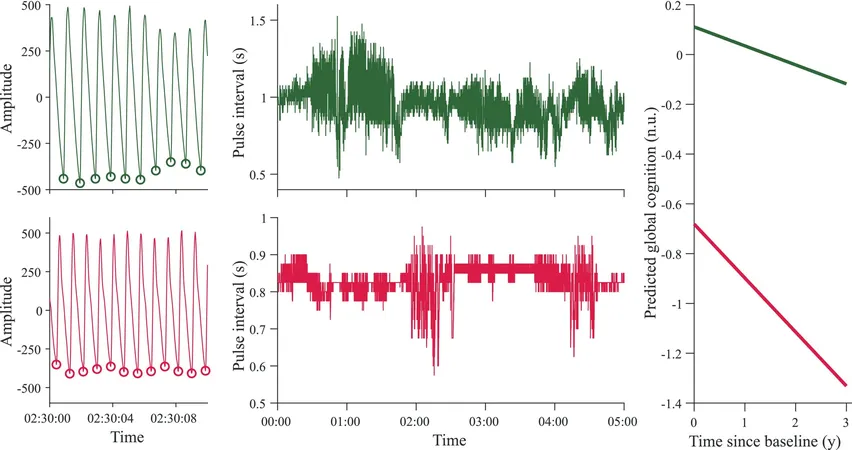
Unlocking the Heart-Brain Connection: How Your Pulse Could Predict Cognitive Decline
2025-05-07
Author: Nur
A Revolutionary Insight into Heart and Mind Health
In a groundbreaking study, researchers from Mass General Brigham have unveiled an innovative way to gauge heart health through pulse rate complexity, which could hold the key to predicting cognitive decline in older adults. Using wearable pulse oximetry devices, these findings offer a fresh perspective on the intricate relationship between our hearts and our minds.
What the Study Reveals
Published in the Journal of the American Heart Association, this research sheds light on how the complexity of heartbeat patterns can signal early signs of cognitive deterioration. Senior author Dr. Peng Li explains, "Heart rate complexity is a hallmark of healthy physiology," emphasizing that a well-functioning heart must adeptly respond to both internal needs and external stressors.
The research involved an impressive cohort of 503 participants, averaging 82 years old, predominantly women. By analyzing overnight pulse rates from the Itamar WatchPAT 300 device alongside comprehensive cognitive assessments, the study found a striking correlation: individuals with more complex heart rhythms exhibited slower cognitive decline over time.
Why This Matters
Conventional measures of heart rate variability fell short in predicting these outcomes. The team’s new method enhances the ability to detect heart functions that may influence cognitive health, representing a significant advancement in medical research.
Future Implications: A Step Towards Dementia Detection
Looking ahead, the researchers are eager to explore whether heart rate complexity could serve as an early warning system for dementia, potentially pinpointing individuals who could benefit from preventative therapies.
Lead author Dr. Chenlu Gao asserts, "Our approach provides a noninvasive window into heart health and its relation to cognitive aging." This study not only paves the way for further investigation but also opens up avenues for understanding how our cardiovascular and neurological systems interact as we gracefully age.
A Hidden Connection Revealed
As we delve deeper into the heart-brain connection, the implications of these findings could revolutionize how we approach cognitive health in aging individuals. By identifying the subtle changes in heart function, we can potentially safeguard our mental acuity for years to come.


 Brasil (PT)
Brasil (PT)
 Canada (EN)
Canada (EN)
 Chile (ES)
Chile (ES)
 Česko (CS)
Česko (CS)
 대한민국 (KO)
대한민국 (KO)
 España (ES)
España (ES)
 France (FR)
France (FR)
 Hong Kong (EN)
Hong Kong (EN)
 Italia (IT)
Italia (IT)
 日本 (JA)
日本 (JA)
 Magyarország (HU)
Magyarország (HU)
 Norge (NO)
Norge (NO)
 Polska (PL)
Polska (PL)
 Schweiz (DE)
Schweiz (DE)
 Singapore (EN)
Singapore (EN)
 Sverige (SV)
Sverige (SV)
 Suomi (FI)
Suomi (FI)
 Türkiye (TR)
Türkiye (TR)
 الإمارات العربية المتحدة (AR)
الإمارات العربية المتحدة (AR)